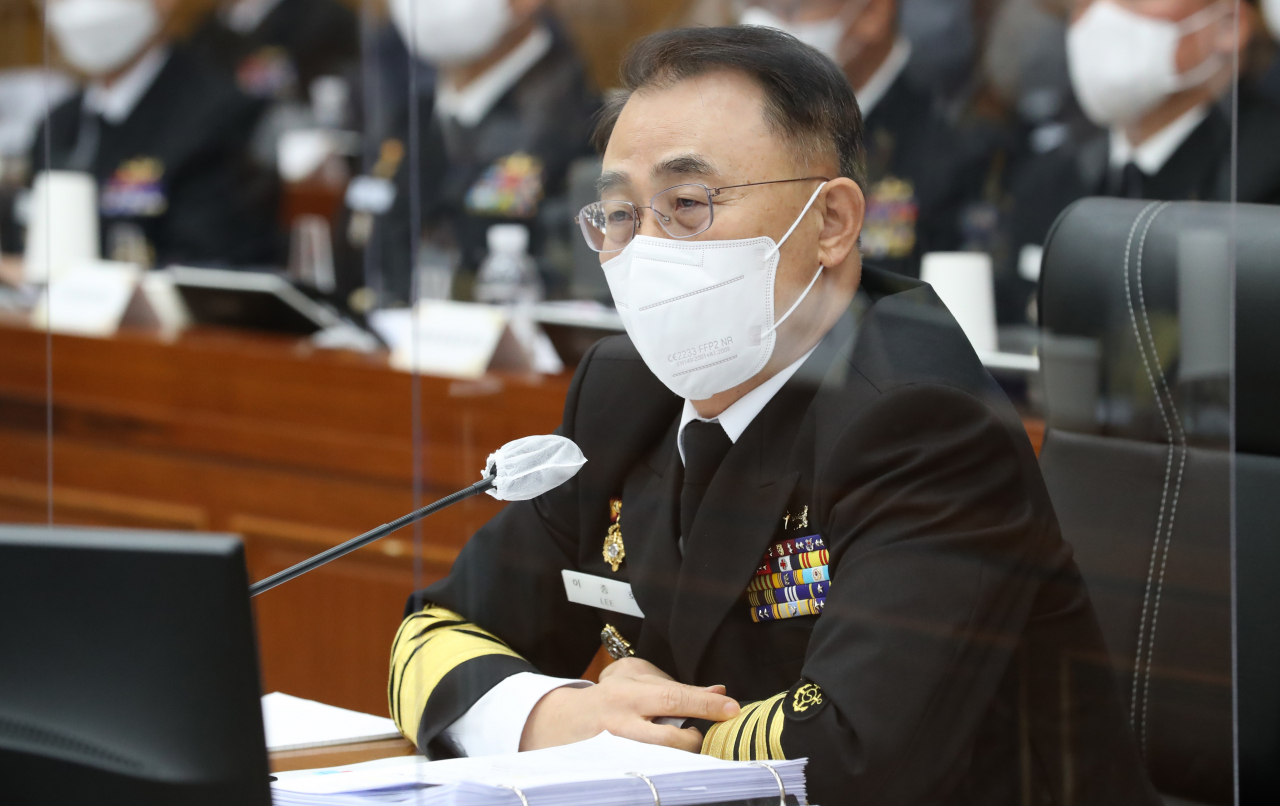 |
Chief of Naval Operations Adm. Lee Jong-ho speaks during a parliamentary audit at the Gyeryongdae military headquarters, 146 kilometers south of Seoul, on Friday. (Yonhap) |
South Korea's Navy is seeking to create a new command running unmanned ships, submarines and aircraft in the 2040s, the armed service said Friday, in an effort to address a potential troop shortage caused by the country's low birthrate.
During a parliamentary audit, the Navy unveiled a series of policy goals, including removing one of the three fleet commands and creating the new command employing unmanned naval assets.
The envisioned command is to comprise three units -- the unmanned surface ship, submarine and aviation groups -- the Navy said.
For the change in its overall force structure, the Navy plans to curtail the percentage of conscripts in its personnel makeup to 20 percent in the 2040s from the current 37.1 percent.
The Navy also outlined its plan to increase the percentage of unmanned assets in its overall operations, which currently stands at 1 percent to 9 percent in the mid-2020s, 28 percent in the mid-2030s and 45 percent in the 2040s.
In addition, it emphasized its focus on establishing a key deterrence system that includes the underwater Kill Chain strike system and maritime multilayered missile defense platform.
The Kill Chain program employs the Navy's next-generation 3,000-ton submarine, maritime surveillance aircraft and naval helicopters. The missile defense platform consists of the country's high-tech Aegis destroyers.
Citing documents from the defense ministry, Rep. Shin Won-sik of the ruling People Power Party said that South Korea is expected to spend some 30.5 trillion won ($21.1 billion) from 2023-2027 to establish the "three-axis" deterrence system.
The three-pronged system consists of the Korea Massive Punishment and Retaliation, an operational plan to incapacitate the North Korean leadership in a major conflict; the Kill Chain preemptive strike platform; and the Korea Air and Missile Defense system.
Meanwhile, the Marine Corps said it is weighing the possibility of its separation from the Navy as an independent entity under its mid- and long-term plans.
Also during the audit, the Air Force said it will push to acquire hypersonic air-to-surface missiles in line with its drive to secure "ultra-precision, high-yield" missiles.
The move comes as North Korea has been seen striving to develop hypersonic missiles in what appears to be an effort to breach the South Korea-US alliance's missile defense. (Yonhap)







